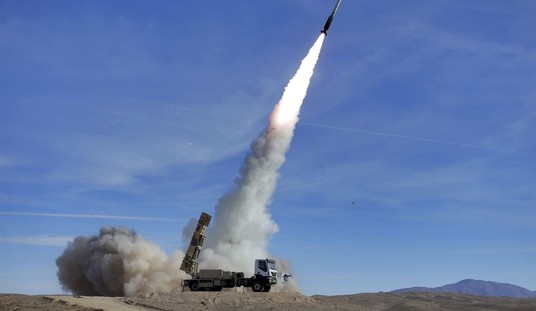Don’t read Spengler when you’re grouchy. Or maybe that’s the best time. Anyway, here he is on Russia’s perception of the U.S. these last ten years or so:
Could the Americans really have been such idiots?, the Russians ask. Of course we could. George Bush and his advisers actually believed that we were going to bring democracy to Iraq and the rest of the Middle East. The Russians understood matters differently. Fyodor Lukyanov writes:
In the summer 2006, when then-President George W. Bush came to St. Petersburg for a summit of the “Big Eight,” an interesting dialogue took place between him and Russian President Vladimir Putin at a news conference. Bush drew attention to the challenges posed by democratic freedoms, especially freedom of the press, in Russia — and then noted that things had gotten much better in Iraq. Putin immediately responded, “Well, we really would not want the kind of democracy they have in Iraq.” The room filled with applause, and not everyone heard Bush’s response: “Just wait, it’s coming.” What Bush had in mind was increased stability in Iraq, but it sounded more ominous: you’ll see, democracy will be brought to you as well…
If the Russians sound mad, consider this: there is another substantial body of opinion that sees an evil conspiracy behind American blundering in the Middle East, and it votes for Ron Paul and Rand Paul. I am not suggesting that Sen. Rand Paul is a paranoid, I hasten to clarify: I have never met the man and don’t presume to judge his state of mind. But his popularity stems in no small measure from conspiracy theorists who think that the U.S. government really is planning to criss-cross the continental United States with killer drones and pick off American citizens on their home soil. A lot of the same people think that America invaded Iraq on behalf of the oil companies (who would make a lot more money if Iraq were zapped by space aliens) or by the Israelis (who never liked the project from the outset). A fair sampling of such paranoia gets posted on the comments section of this site.
Thus we have the strangest pair of bedfellows in modern politics, the Russians and the rubes.
A dozen or more years ago I read James Dale Davidson and William Rees-Mogg’s The Sovereign Individual: Mastering the Transition to the Information Age. It’s a fascinating read, and just as relevant today as it was when it was written in the late ’90s. There are two points in it of particular salience today.
The first is their argument that the reduced cost of offensive weaponry had changed both the parameters of warfare, and its participants. At the time, this part had me shaking my head at how wrong two smart gentlemen could be. Tanks and planes cost more than ever. It takes months and millions to make an infantry leader. “What the hell are they talking about?” I wondered.
Then 9/11 happened. Before the dust had all settled, when we learned that a few men with boxcutters had carved the heart out of Manhattan, I thought back to Davidson and Rees-Mogg and said out loud to myself: “Oh. That’s what they meant.” We got another lesson just yesterday, as North Korea launched a cheap internet attack on South Korean media, which might have cost the South millions.
Weaponry is cheap. The battlespace is everywhere. And you don’t have to be a nation-state to play.
The second is how the authors saw the global map changing. When nation-states are less able to defend their citizens from attack, or — and this is a vital concept — increasingly unable to keep their citizens’ loyalty, then nation-states must alter their sizes, functions, and powers. Davidson and Rees-Mogg predicted a globe of many more countries, with fuzzier borders and a wide array of forms. We will see, they said, the return of Medieval-style marches, city-states, and even privately held commercial enterprises all sharing the map.
Marches were semi-sovereign borderlands with loyalties and duties to two sovereign neighbors, playing one off the other to maintain a degree of independence. And for those commercial states, picture a place like Singapore taken private by a Russian oligarch. Or Microsoft with a small-but-potent military. For a vivid picture of such a world in fiction form, try Robert Heinlein’s 1982 novel Friday. Heroine Friday’s brief comic adventures in the near-future California Republic alone are worth the price of the whole book — and tragically prescient, too.
The Sovereign authors did not hold out much hope for the United States. They had especially nasty things to say about our IRS, which they expect to become increasingly desperate, vindictive, and even criminal as encryption begins to allow ordinary people (but especially the very rich) to hide their incomes. And “criminal” is what they had to say 11 years before ObamaCare swelled the IRS’s ranks and powers even further.
I write all this because the Terror War seems to have accelerated the Davidson and Rees-Mogg’s predictions for the world map — or at least the map of the Arab World. By failing to employ a large enough force, then eliminating both the Iraq Army and the Ba’ath Party, we set loose sectarian violence in Iraq unseen for decades. Those forces have escaped.
So although the same nations still officially exist along the crescent from Marrakech to Baghdad, those borders mean less than they once did. The place we still call Syria might soon devolve into more political entities than are now extant in the entire region. Not too far away, Somalia is already three places, one of which is barely a place. Neighboring Ethiopia and Eritrea went their separate ways in the ’90s, but still haven’t been able to figure out who gets the house and who gets the kids. Sudan is now Sudan and South Sudan — and yet the fighting over the new border hasn’t stopped. West Africa was never as tidy as it appears on the map, and is getting messier all the time.
It’s true the Black Africa and Arab Africa are special cases, with borders drawn decades ago by outsiders, with zero acknowledgement of “facts on the ground.” But now that these centrifugal forces have been set loose, they’re becoming more and more difficult to control. Not even Iron-fisted Russia has been able to put the lid back on its restive minorities, even (especially?) after letting the other 14 former Soviet Republics go their own ways. Hell, even the EU — the supposed model for future world peace and rainbows and unicorns — is tearing itself apart.
Technology has empowered the individual, yes — here in the West. But elsewhere it’s also empowered groupthink minorities with great big historical axes to grind, and very little compunction about swinging those axes down on the necks of infidels, foreigners, potentates, oppressors, etc.
And I can’t think of anything we’ve done since that book was written to successfully contain those forces. I can’t think of much we could have done.
So, yes, Spengler is right that the Russians think we must be mad, when in fact we’ve mostly acted as good-hearted fools. But given the historical-technological forces set loose by the microchip and fiber-optic cable, maybe “good-hearted fool” is as good as it gets.










Join the conversation as a VIP Member